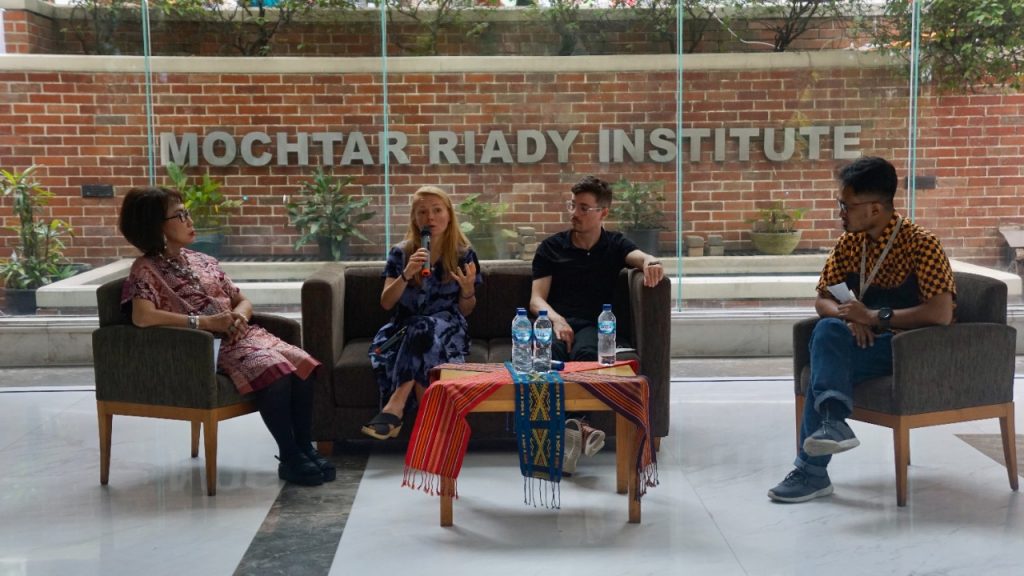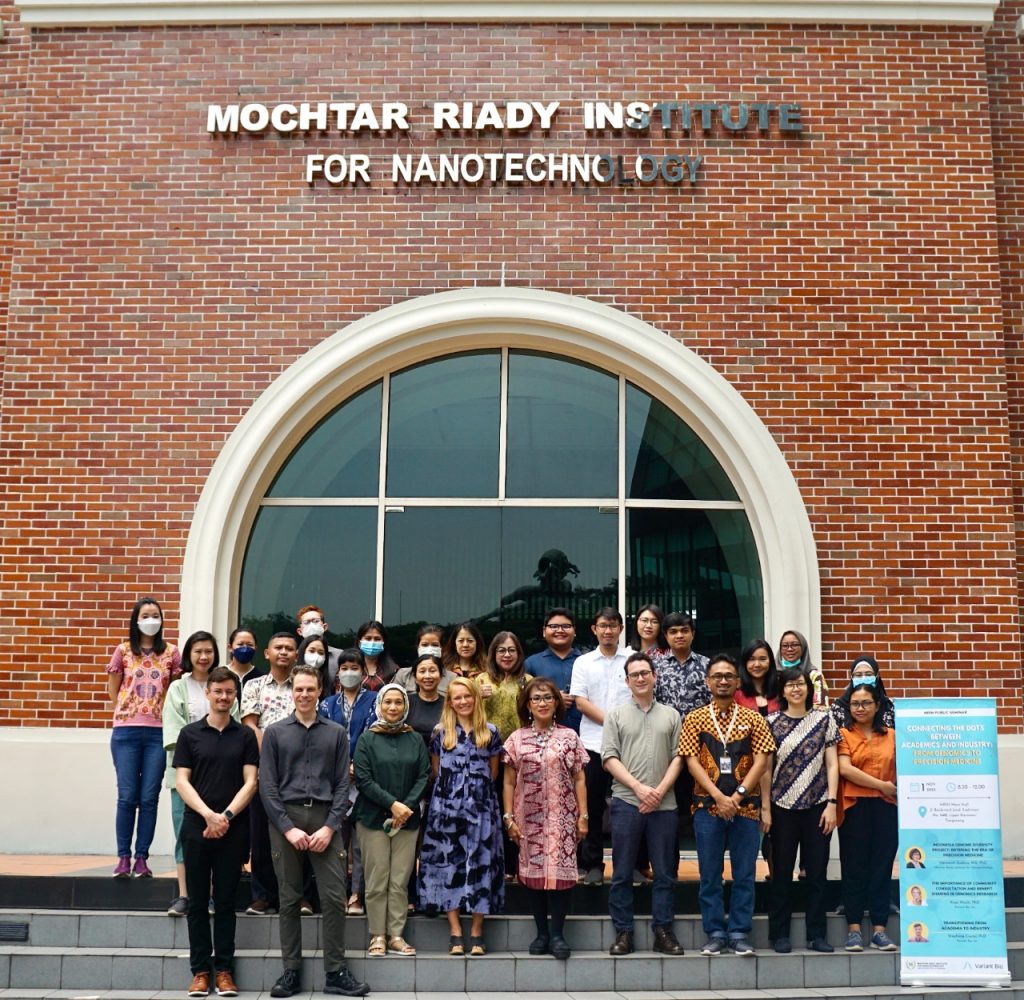Connecting the dots between academics and industry
" From Genomics to Precision Medicine "
The Mochtar
Riady Institute for Nanotechnology (MRIN) held a public seminar on Tuesday,
November 1st, 2022, in collaboration with Variant Bio, a biotechnology company
based in Seattle, United States. This seminar, “Connecting the Dots Between
Academics and Industry: From Genomics to Precision Medicine”, covered the
topics about the current efforts for studying the genome diversity of
Indonesian communities, the importance of community consultation and benefit
sharing in population-based health research, and how a partnership with
industry propels innovation towards the era of precision medicine. Variant
Bio’s founders, Kaja Wasik, Ph.D., and Stephane Castel, Ph.D., gave the
lectures along with MRIN’s senior researcher, Prof. Herawati Sudoyo, MD, Ph.D.
The Mochtar Riady Institute for Nanotechnology (MRIN) held a public seminar on Tuesday, November 1st, 2022, in collaboration with Variant Bio, a biotechnology company based in Seattle, United States. This seminar, “Connecting the Dots Between Academics and Industry: From Genomics to Precision Medicine”, covered the topics about the current efforts for studying the genome diversity of Indonesian communities, the importance of community consultation and benefit sharing in population-based health research, and how a partnership with industry propels innovation towards the era of precision medicine. Variant Bio’s founders, Kaja Wasik, Ph.D., and Stephane Castel, Ph.D., gave the lectures along with MRIN’s senior researcher, Prof. Herawati Sudoyo, MD, Ph.D.

This
seminar emphasized precision medicine as the future of targeted health
prevention, diagnostics, and treatments. Precision medicine can be achieved
with the integration of Whole-Genome Sequencing (WGS), Genome-Wide Association
Study (GWAS), multi-omics data, and clinical data of an individual. However, a
global precision medicine model can only be actualized with an ethnically
diverse global genome database that captures the genetic variations, population
structure, and disease associations of different populations in the world. The
main challenge with the current human genome database is that it is
predominantly composed of individuals with European ancestry. Therefore, the
Indonesian Genome Diversity Project (IGDP) aims to fill in those missing pieces
in the global genome database by collecting the genomics data of Indonesia’s
vastly varied
ethnic populations. MRIN’s Genome Diversity and Diseases division (GDD) joined forces
with Variant Bio to study Indonesia’s diverse ethnic populations. This
partnership aspires to bolster a more comprehensive, multicultural human genome
database of the global population towards the era of precision medicine. On top
of that, all of the speakers insisted on the significance of collaboration,
conducting studies that are ethical and provide benefit for the participating
communities, as well as develop capacity of local researchers in Indonesia.

